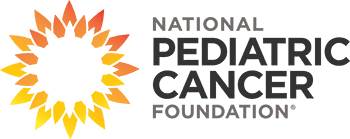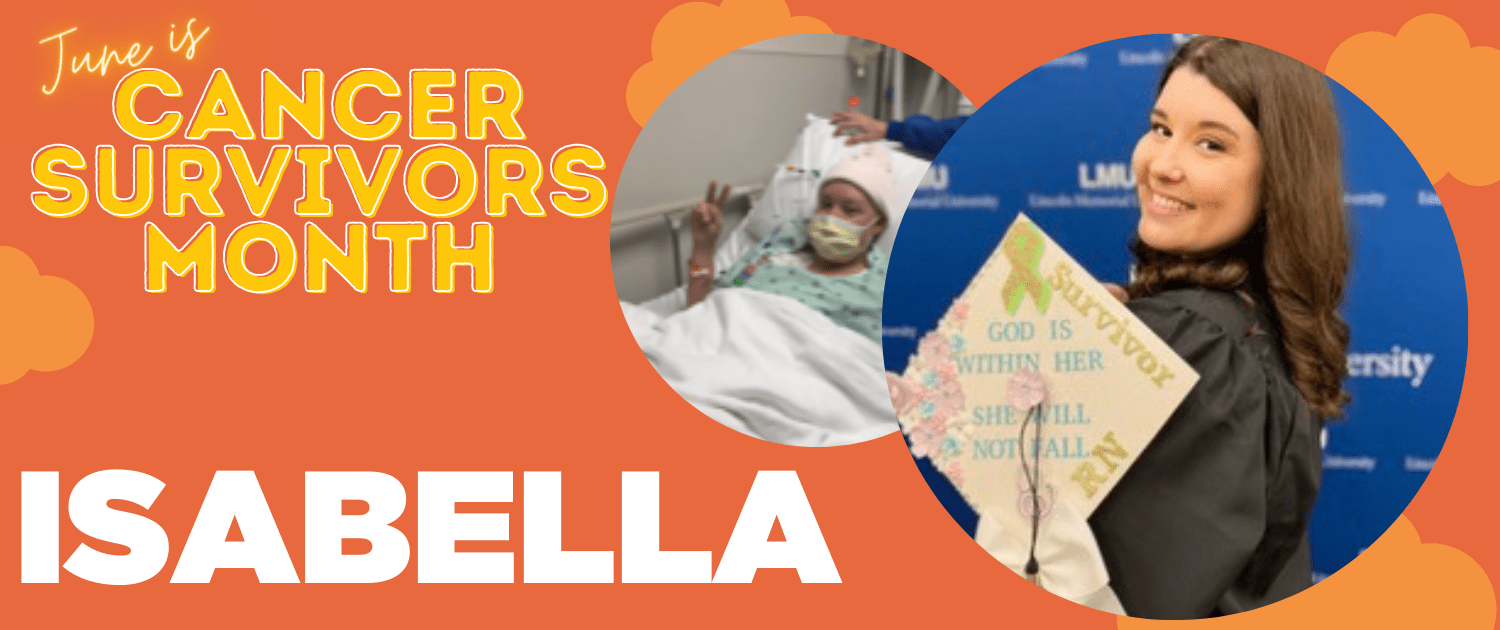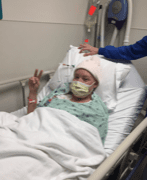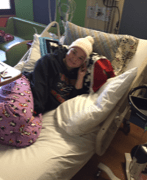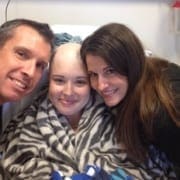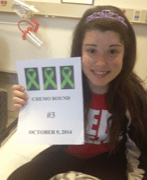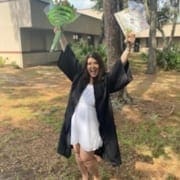June is Cancer Survivors Month,
Read Isabella’s Story!
My name is Isabella Ramirez, and at the age of 17, I was diagnosed with Stage 3 non-Hodgkin’s anaplastic large cell lymphoma, a very aggressive form of cancer. As a high school senior, my life revolved around college applications and balancing all of my extracurricular activities. I had no idea at that time how much my life would change. For the next year, I received 20 rounds of chemo, lost my hair, was in and out of the hospital, and struggled to maintain some sense of normalcy so I could enjoy a few highlights of my senior year. Three weeks after what was supposed to be my last chemo treatment, I had “end of chemo” scans to make sure I was in remission. Unfortunately, the scans showed my worst fear, and my cancer had relapsed and was even more aggressive than before.
My doctors put me on an intense treatment plan which included more chemotherapy, radiation, and a bone marrow transplant. For my transplant, I had to leave my hometown of Tampa to be treated at a hospital in Gainesville, FL and had to remain there for several months, while I recovered. My brother, Max, was my donor, and the transplant went successfully with few complications. Being bald, wearing a mask, and feeling weak and sick became my new normal which was very difficult because I was staying in a college town with kids my age that were doing what I was supposed to be doing. It was a hard year for me being so isolated because of my immune system, but I learned so much about myself and became so much more appreciative of my family. At that time, it was hard to imagine my life as a “survivor” and what that kind of life would look like. When you fight so hard for something, and finally get to that point you were waiting for, it is hard to imagine what is next. The year after my transplant these thoughts plagued my mind. What do I want for my life now that I get to finally live it?
Once I was cleared by my doctor to start school, I decided to apply at my local University, so I could stay close to home. It felt like cancer had taken the last two years from me and I was tired of seeing my peers move on with their college lives, so I was determined to catch up and claim back my “new normal” life. I joined a sorority right away and moved into the sorority house. What I didn’t expect was to continue struggling with the PTSD and other mental illnesses I had worked hard to overcome over the past year. A lot of what triggered these issues for me actually came from social barriers when trying to make connections with people and personal perceptions of feeling different from them in a negative way. Initially, what made me feel this way were the more obvious, physical differences between me and my peers such as my hair being extremely short and having scars and stretch marks covering my body from treatment, and being surrounding by beautiful college-aged sorority girls with long hair and “perfect” bodies. I never thought such superficial thoughts would affect me so much, especially after everything I had been through, but no matter what, I was still a teenage girl who struggled with body image and my body had been through a war at too early of an age.
Another social barrier I discovered pretty quickly was that experiencing a time that was traumatic and different from my peers made it extremely difficult to make connections with them. Everyone fights their own battles; however, I learned pretty quickly that cancer is not something many people that age are comfortable hearing about, at least on a more personal level. I have always been very open and comfortable talking about my cancer story, but most people would get uncomfortable, silent, and awkward when I tried to explain what I had just been through even when talking about it on a very general level. This made it difficult to find any acceptance among peers considering this was a big part of who and where in life I was at that time. This all led to a furthered struggle with intimacy and social anxiety. Fear of rejection and isolation drove me to do my best to conform to what I thought I should be to fit in and for a while, I avoided talking about cancer to avoid being judged. It took a little while, but I eventually found a few friends that fully accepted me and gave me strength. These are the people that I continue to count on and always support me and lift me up when I need it.
I struggled constantly and continue to struggle with late effects of treatment such as infertility, lack of energy, PTSD, anxiety, depression, and fear of relapse. As someone who has always had a lifelong dream of being a mother, it is hard to imagine forming intimate relationships and having to talk about the subject of my infertility with someone who also wants to have children. I know fertility issues can be very common and I am not against other options, but to have that option taken away at a young age is very upsetting. This is something I will continue to try to work through as I know I have not crossed that bridge yet. Another issue that plagues me daily is chronic fatigue. This makes it very difficult to do the things I used to do easily without feeling exhausted before having cancer. This is also something that concerns me as I enter my career and adult life. Fear of relapse is something that I deal with regularly. Unfortunately, it is more common whenever I start to feel like things in my life are going right. This is because when you are battling cancer, one day you could be feeling great and normal, and the next you feel as if you are on your death bed and stuck in the hospital. Cancer is unpredictable, uncertain, and always seems to strike when you start feeling confident again. This makes it difficult to “get comfortable” in the survivor chair, no matter how many years you may put between you and cancer.
Through all of the emotional and mental battles I have dealt with in my past 6 years of remission, I am proud to say that I am continuing to overcome and discover who I am as a person and a survivor. I am proud to say that I just graduated nursing school this month and will sit to take my NCLEX this summer. I hope to find a pediatric position or residency program and eventually work on the very floor on which I was treated. The passion I have for kids going through cancer is unique and I want to spend the rest of my life being that impact on theirs. Whenever I feel discouraged, I remember that there is going to be a kid out there one day that is going to need me to be the best nurse I can be and push on. I am thankful for my cancer journey and my survivor journey as it has led me to where and who I am now, and I wouldn’t have it any other way.
